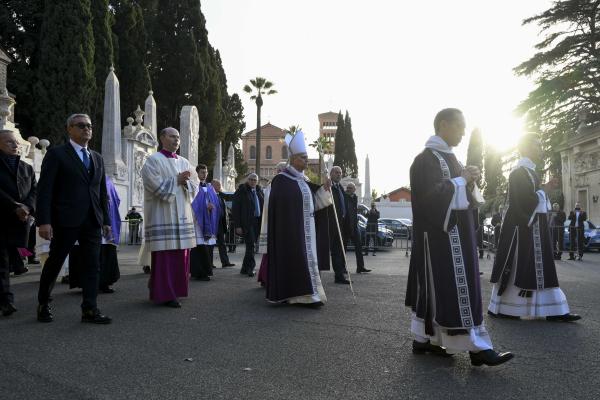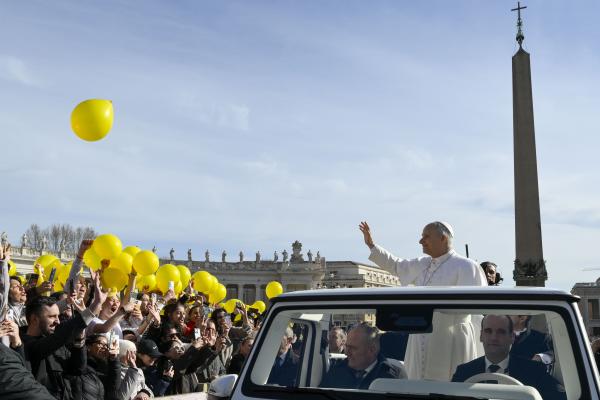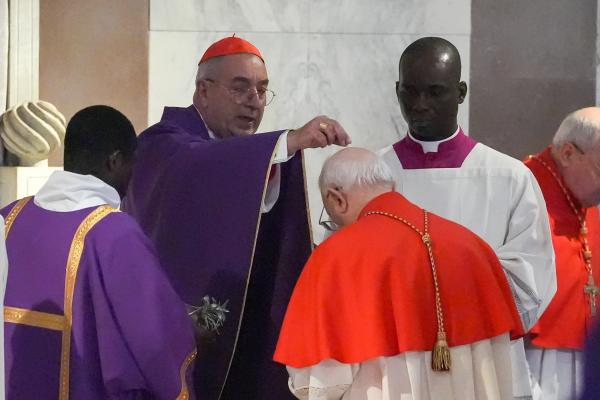Papal diplomats must always defend poor, religious freedom, pope says
Pope Leo XIV thanked papal representatives for their role as diplomats and pastors, asking them to build bridges and relationships "where it is hardest to do."
Working in so many countries around the world, they see "the suffering of the innocent, the crucified of today," as they serve victims of war, violence and injustice, "or even of the false well-being that deludes and disappoints."
 Carol Glatz
Carol Glatz
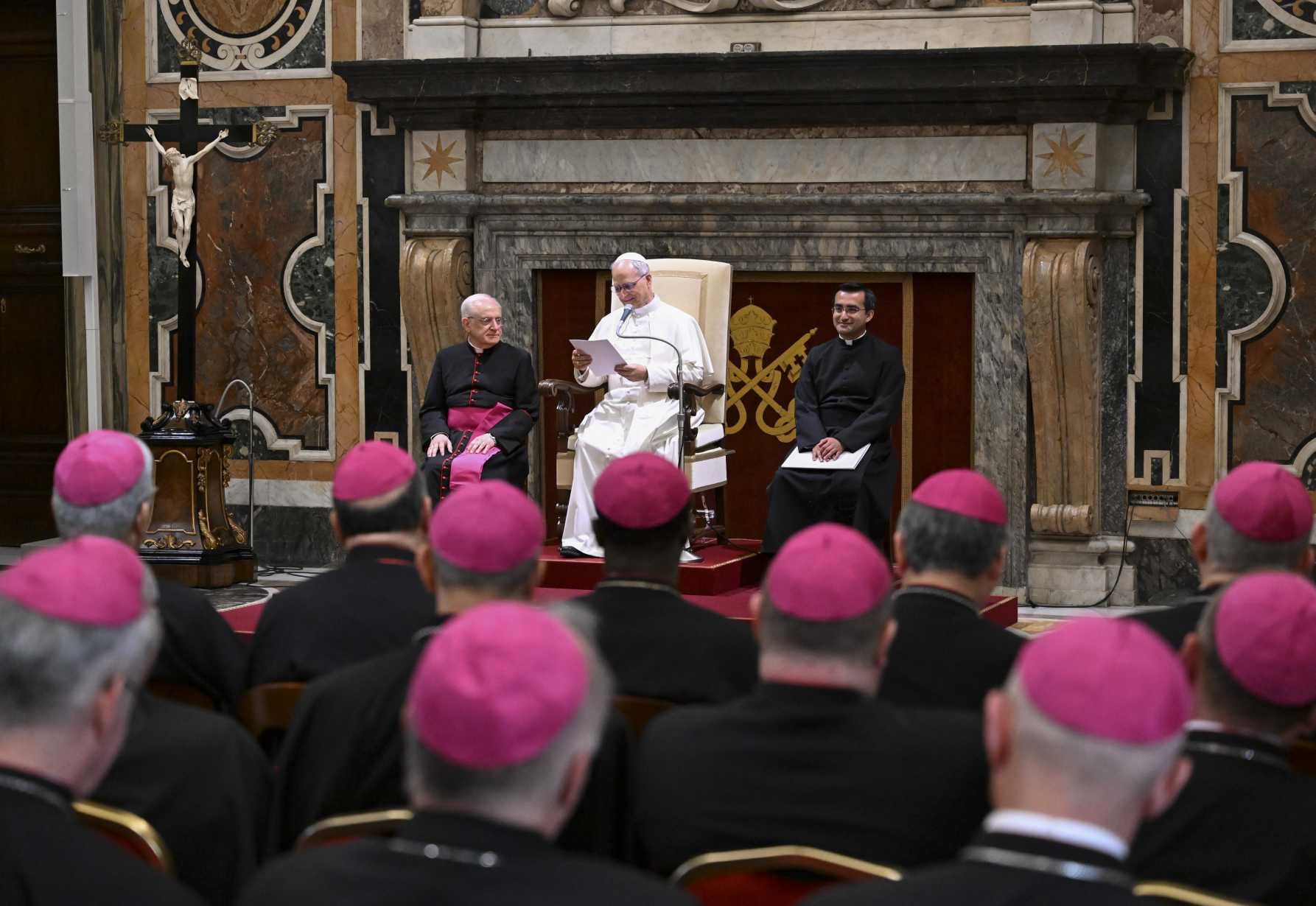
Pope Leo XIV speaks to apostolic nuncios and other papal diplomats during an audience at the Vatican June 10, 2025. (CNS photo/Vatican Media)
VATICAN CITY (CNS) -- Every papal diplomat around the world must let people know that the Catholic Church is always on the side of the marginalized and is ready to face everything "out of love," Pope Leo XIV said.
"I count on you so that everyone in the countries where you live may know that the church is always ready for everything out of love, that she is always on the side of the least, the poor and that she will always defend the sacrosanct right to believe in God, to believe that this life is not at the mercy of the powers of this world, but is permeated by a mysterious meaning," the pope said.
As part of the Jubilee of the Holy See, Pope Leo met at the Vatican June 10 with apostolic nuncios and other papal diplomats, mostly archbishops, who represent the pope to international institutions and national governments. There are more than 100 nunciatures around the world.
"Your role, your ministry, is irreplaceable," the pope told them, thanking them for their dedication and especially for their work in helping with the selection of candidates to become diocesan bishops.
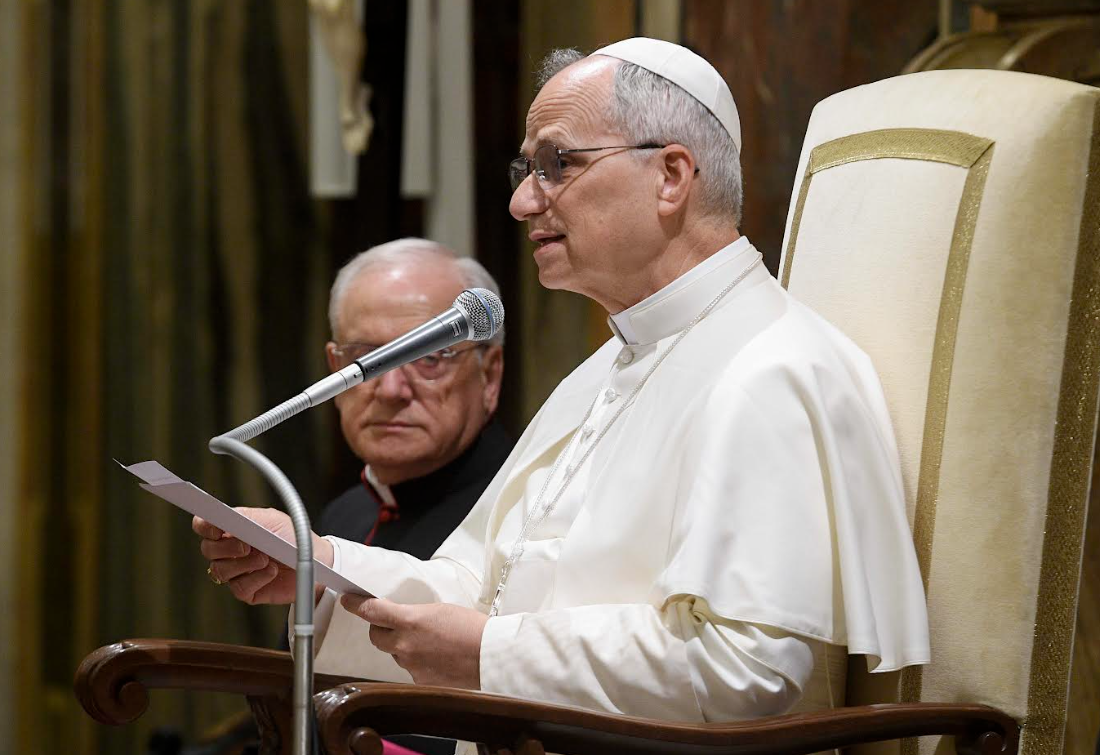
A diplomatic corps as universal and united "as ours does not exist in any other country in the world," he told the group of prelates who are chosen from around the world and usually sent to study at the Pontifical Ecclesiastical Academy in Rome.
"Your, our, communion is not merely functional, nor an idea; we are united in Christ, and we are united in the church," he said. "The diplomacy of the Holy See constitutes in its very personnel a model -- certainly not perfect, but very meaningful -- of the message it proposes: that of human fraternity and peace among all peoples."
As pope, "the ministry of Peter is to create relationships, bridges: and a representative of the pope, first and foremost, serves this invitation" to build relationships by looking at those they meet with the eyes of Peter, he said.
"Be men capable of building relationships where it is hardest to do," the pope told them. "But in doing so, preserve the same humility and the same realism of Peter, who is well aware that he does not have the solution to everything, but he knows he has what counts, namely Christ."
"To give Christ means to give love, to bear witness to the charity that is ready for everything," Pope Leo said.
"Only love is worthy of faith, in the face of the suffering of the innocent, the crucified of today, whom many of you know personally, as you serve peoples who are victims of war, violence and injustice, or even of the false well-being that deludes and disappoints," he said.
The pope described the importance of their work in helping him address various issues. "Because when a situation is presented to me that relates, for example, to the church in a given country, I can rely on the documentation, reflections and summaries prepared by you and your collaborators."
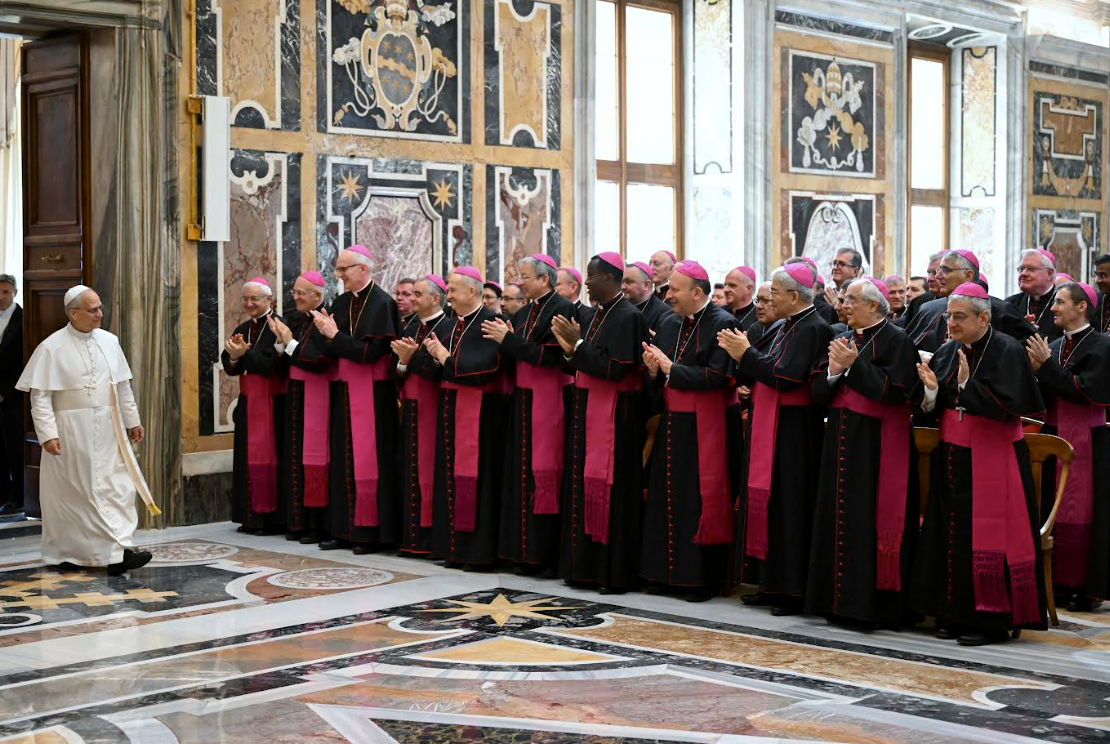
Papal representatives are more than diplomats, he said; they should always be pastors, inspired by "the spirit of faith."
Through his representatives in different nations, the pope is able "to participate in the very life of his sons and daughters" and becomes aware of their needs and aspirations, he said.
Pope Leo told them to "feel that you are missionaries, sent by the pope to be tools of communion, unity, serving the dignity of the human person, promoting sincere and constructive relations everywhere with the authorities with whom you are required to cooperate."
Cardinal Pietro Parolin, who as Vatican secretary of state, oversees the papal diplomatic corps, told Vatican News June 9 that a nuncio is "a bridge" between the pope and local churches, between the church and nations, "and between the wounds of the world and the hope offered by the Gospel."
A papal representative, he said, "must be a man of reconciliation" because "the mission of pontifical diplomacy is to support the Holy Father's efforts to build a world rooted in truth, justice and peace."
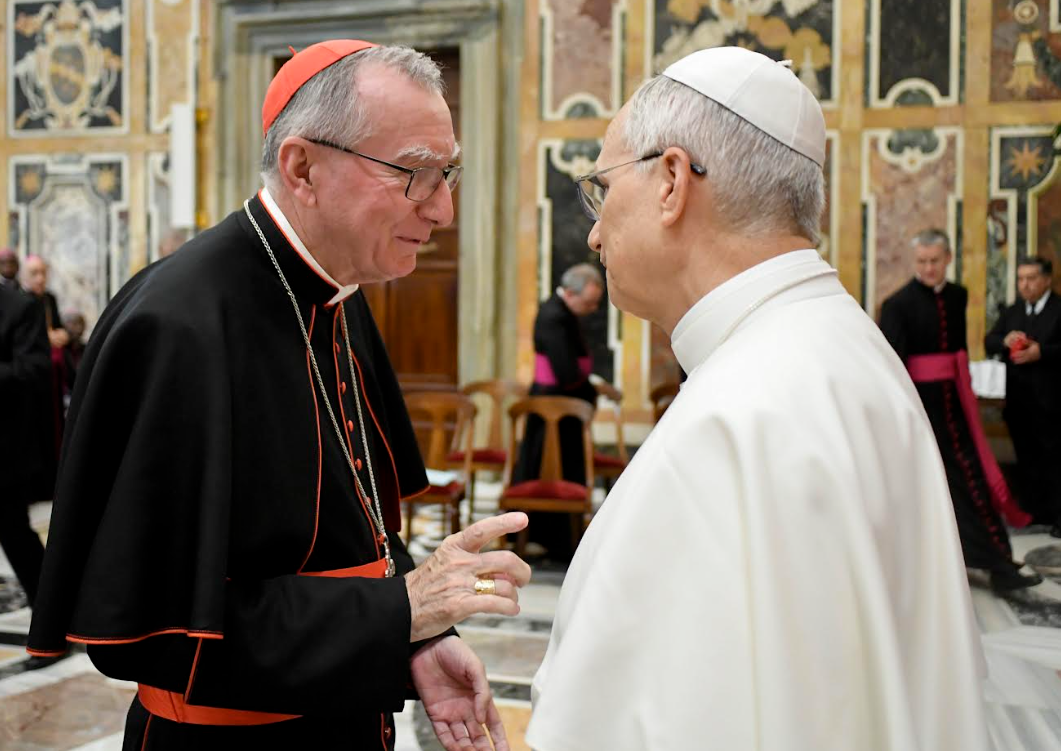
A papal nuncio "is called to dedicate himself to mediation and dialogue. This is the only way to weave the fabric of international cooperation and discern even the faintest will for peace among divided parties," he said.
"We must respond to the Holy Father's call to be sowers of peace, recognizing that in diplomacy, the other is not primarily an adversary, but a fellow human being with whom we are called to engage," Cardinal Parolin said.
The nuncio's diplomatic missions, "engaging with civil authorities, working to heal divisions and promoting peace, justice and religious freedom," are not carried out to promote the Vatican's interests, but they are "guided by a Gospel-centered vision of the world and international relations," he said.
Indeed, they need to be "grounded in a true pastoral presence," Cardinal Parolin said. "A nuncio is, above all, a man of the church -- a pastor -- who is called to follow the example of Christ the Good Shepherd" and to be "close to bishops, priests, religious and the communities they are sent to serve."
- - -
Reporting by CNS Rome is made possible by the Catholic Communication Campaign. Give to the CCC special collection in your diocese or any time at: https://bit.ly/CCC-give

